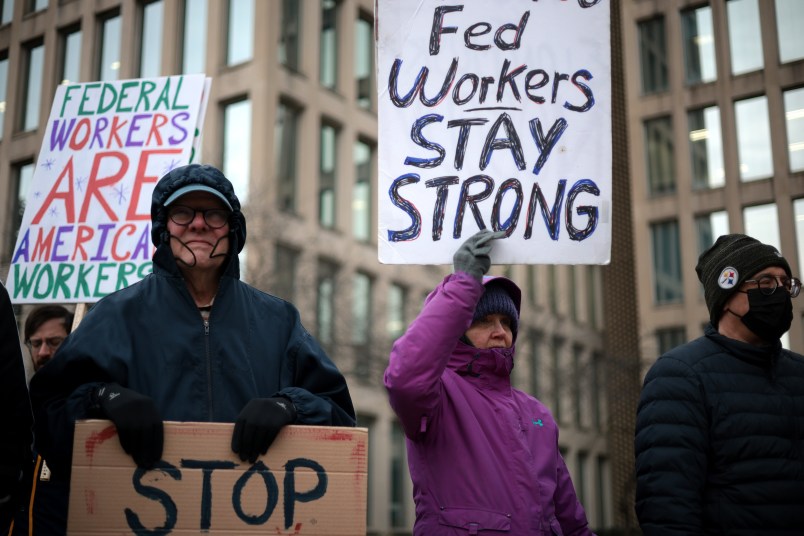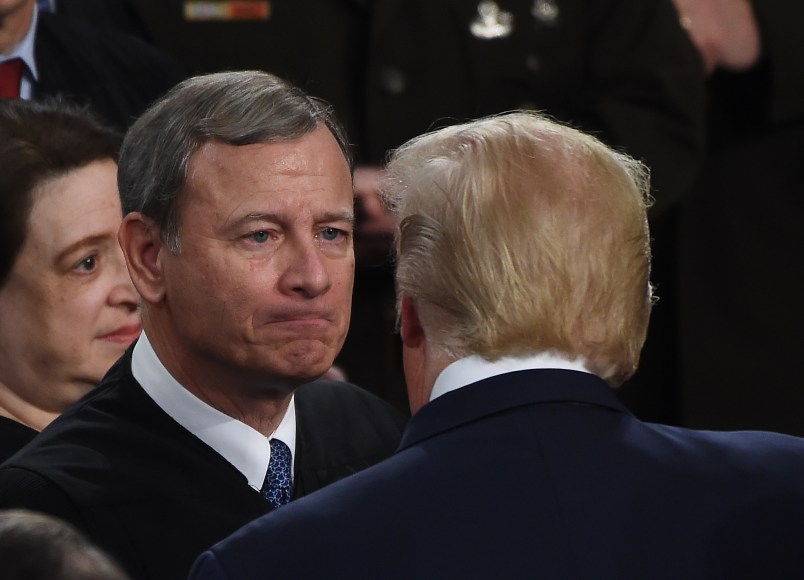
After being mostly scuttled by the Supreme Court, the original Alien Enemies Act case has re-entered the conversation.
While the high court took most of the Alien Enemies Act challenges out of the hands of U.S. District Judge James Boasberg of D.C. and distributed them to the individual judicial districts where Venezuelan nationals are being detained under the act, it left unresolved the fate of the deportees already removed to CECOT in El Salvador.
In a significant ruling yesterday, Boasberg concluded that the CECOT detainees were denied due process when they were removed March 15. He ordered the Trump administration to propose a plan within a week for how to “facilitate” giving the detainees the due process they were denied.
While President Trump’s invocation of the Alien Enemies Act was itself historic and the cases challenging his proclamation are testing the robustness of due process, the real import of these cases is that they are where the executive branch is threatening to and in fact is running roughshod over the judicial branch. In defying court orders, including to “facilitate” the return of other wrongfully deported foreign nationals, the Trump administration has provoked a constitutional clash, practically daring the judicial branch to try to stop it.
Boasberg’s decision sets up another potential focal point for that constitutional clash. Here are 5 points on how Boasberg’s ruling anticipates that confrontation:
Why did Boasberg take such a circular route to get to the same place?
Boasberg’s ruling wasn’t a complete victory for the CECOT detainees. He found it unlikely that they would win their habeas corpus claims. For the detainees to prevail on the habeas claim, they had to show that they were in the “constructive custody” of the United States, meaning under U.S. control or held at its behest. It’s troubling that Boasberg was unconvinced on this point and even he seemed troubled by it, but by taking it off the table, he eliminates one ripe avenue of appeal for the government. By grounding his ruling in the due process clause of the 5th Amendment instead, he aligned with the Supreme Court’s recent strong defense of due process in this very case. And in the end, he winds up at roughly the same place because he concluded that the remedy for violating the detainees due process was to allow them the chance to pursue the habeas claims they were denied in the first place.
Boasberg grapples with the limits of judicial power.
Boasberg seems keenly aware that this Supreme Court is going to give maximum deference to the executive branch. I suspect that’s one reason he effectively sidestepped the “constructive custody” issue. The Roberts Court isn’t going to get involved in foreign policy by ordering the administration to make demands on El Salvador, and so Boasberg is walking a fine line. “Although the Court is mindful that such a remedy may implicate sensitive diplomatic or national-security concerns within the exclusive province of the Executive Branch, it also has a constitutional duty to provide a remedy that will ‘make good the wrong done,’” Boasberg wrote.
The CECOT detainees aren’t being released anytime soon.
In open court previously, Boasberg had mused about how due process could be provided without having to return the detainees to the United States. In his written opinion, Boasberg said that facilitating a return of the CECOT detainees is “not necessarily” the only presumed remedy for the due process violation.
Boasberg was vague about what kind of process he was looking for to provide the detainees with their denied due process. “Exactly what such facilitation must entail will be determined in future proceedings,” he wrote. His invitation to the government to propose a process invites some sort of remote habeas proceeding.
But in the short term it may not matter because the Trump administration will almost certainly appeal Boasberg’s preliminary injunction to the D.C. Circuit Court of Appeals and ask it to pause the case so that it doesn’t have to propose a plan for giving the detainees belated due process, before the deadline Boasberg set for next week. From there, the case is a sure bet to go to the Supreme Court. In the meantime, the CECOT detainees, who are approaching the three-month mark of their confinement there, will remain in indefinite custody.
Was Boasberg being coy when he set a nominal injunction bond of $1?
Plaintiffs typically must post an Injunction bond, which is intended to make defendants whole if it turns out the injunction was improperly granted. It’s common for judges to waive an injunction bond when the injunction is against the federal government. I was left wondering whether Boasberg set a nominal bond of $1 here to sidestep the yet-to-pass House GOP’s reconciliation bill which contains a provision that would prohibit federal judges from enforcing contempt citations unless a bond was posted when an injunction was issued. No way to confirm Boasberg’s intentions, but it caught my eye.
WYD DC Circuit?
In his opinion, Boasberg highlights more than once the Trump administration’s poor conduct in this case from the beginning. You’ll recall he already found probable cause that the administration violated his order when it proceeded with the deportations on March 15 and didn’t turn the planes around. He references his contempt of court inquiry in the opinion.
All of which serves as good reminder that the D.C. Circuit Court of Appeals placed an administrative stay on the contempt of court inquiry more than six weeks ago. It’s been fully briefed since April 28. And still no ruling from the appeals court. Meanwhile, several other courts have begun incipient contempt of court proceedings against the administration in other Alien Enemies Act cases and adjacent “facilitate” cases.
It’s not at all clear what is taking the D.C. Circuit so long.




